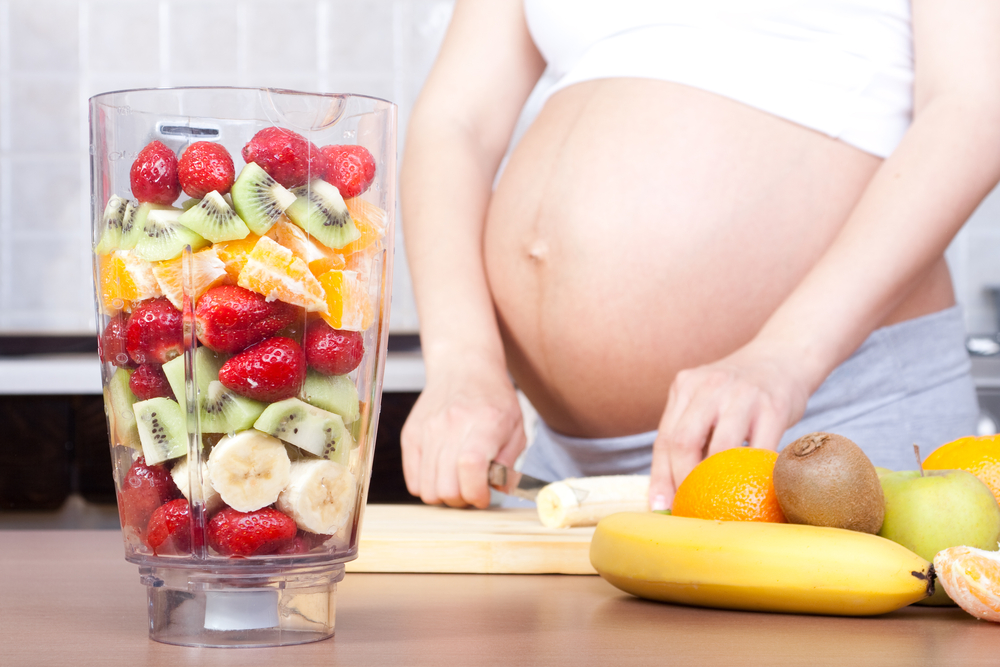The conflict about organic vs. regular foods is a hot one, especially when it comes to the question of what makes for the healthiest pregnancy foods. Let’s start by looking at what organic food really is, and then why proponents recommend it so highly.
What is Organic Food?
Organic farming is the practice of raising crops using only those chemicals that occur naturally, along with traditionally based practices to control disease and pests.
When relating to cattle the vocabulary changes and you hear grass-fed, and with poultry the term is free-range. While free-range is often assigned to cattle, it is not a regulated term in that case.
The potential dangers of inorganic spraying
Even common weed killers, such as those that are used around the home, pose serious risks to pregnant women and their babies. An increased risk of birth defects, miscarriages, cancers and neurological disorders have been confirmed in women and children exposed to both domestic products and those used commercially. There has not yet been a definitive conclusion drawn on the risk level associated with residue left on food that arrives in the marketplace.
This does not mean that organic sprays have no risk; some do. Sulfur, rotenone, pyrethrum and nicotine sulfate all are used in organic farming and have warnings associated with them, although they tend to be contact warnings rather than neurological concerns.
Nutritional Advantages
There has always been some debate over whether or not organic, free-range or grass fed food sources offer more nutrients or not. Until recently, accurate studies had been impossible.
The most current research does show that food grown with these methods actually has more nutrients, although the difference varies from product to product.
For example, sweet peppers have been found to consistently have 26-33% more vitamin C and phenols than conventionally grown varieties. Grass-fed beef has less saturated fat and more Omega 3 than feed lot cattle.
When You Must Pick and Choose Your Pregnancy Foods
For many people, finances dictate that they must choose some foods that are conventionally grown and some that are organically grown. When it comes to produce, the following 12 are considered the “dirtiest” when it comes to chemical contamination.
1. Peaches
2. Apples
3. Sweet Bell Peppers
4. Celery
5. Nectarines
6. Strawberries
7. Cherries
8. Lettuce
9. Grapes
10. Pears
11. Spinach
12. Potatoes
These would be the foods you are better to buy organically.
The 10 “cleanest” are:
1. Onions
2. Avocados
3. Frozen Sweet Corn
4. Pineapple
5. Mango
6. Frozen Peas
7. Asparagus
8. Kiwi
9. Bananas
10. Cabbage
Why the Healthy Food Store?
Healthy foods stores rarely guarantee that their whole selection will be organically produced, but they do make an effort to provide you with a reasonable, seasonal selection of healthy foods.
The advantage is really evident when you purchase items in bulk. If you wish to purchase organic grains you can cut your costs, sometimes by as much as 50% by diving into the bulk bins, and you are getting the exact same product as you do in the convenient boxes.
Seasonality also makes a big difference in the amount of travel your food must endure. The less it travels, the healthier it will be when you eat it, and for those who consider the ecological impact, local foods create less of a carbon footprint.
Now, let’s readdress the question of whether it pays to purchase organic foods during pregnancy. In light of the fact that we know that chemicals have a greater effect on smaller people, and that they can cause specific problems to the infant in sufficient quantities, it is probably best to avoid those foods that are most heavily sprayed – at least during pregnancy.
Of course millions of babies are born every year and are perfectly healthy, regardless of what their mothers do during gestation. But in light of the growing evidence, it’s worth re-thinking where you get your pregnancy foods.
